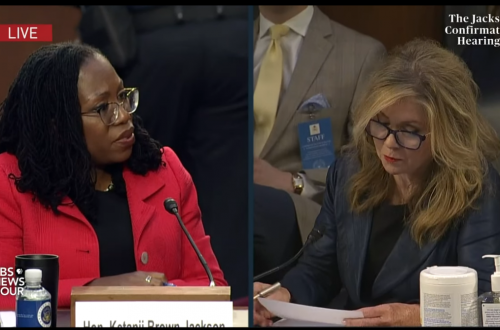It is often said that voting for a third party is a wasted vote (see video above). But is that really true? In a really helpful essay titled “Is It a Sin to Vote for Trump?,” Owen Strachan highlights historical precedents that demonstrate the potential value of a third party vote. He writes:
Some have argued that Christians must support Trump or else throw their vote away. This is a possible conclusion, and it’s not one that should sit lightly on the evangelical conscience. It is very hard to tell what precisely Trump would stand for in terms of pro-life advancement; at the very least, it is chilling to consider the fate of countless unborn children in the wake of a Clinton presidency. However, third-party voting is not necessarily a “throw-away” option. Two historical examples may suffice.
First, the 1964 presidential contest featured Barry Goldwater, a candidate who championed a brand of politics that many conservatives—and many Christians—liked in principle. But Goldwater was trounced in the general election by Lyndon Baines Johnson, losing more than 40 states. It was a historic defeat. But that is not the full story. Goldwater’s candidacy and advocacy of certain principles had a catalytic effect among conservatives. Among many others, Ronald Reagan was galvanized by Goldwater. Not twenty years after Goldwater’s loss seemed to herald a new obsolescence in politics, Reagan took office, and became one of America’s most popular and consequential presidents.
Second, we think of a more quixotic bid for office—that of William F. Buckley, Jr, in the 1965 race for New York City mayor. In the 1960s, Buckley was distressed by the drift toward progressivism he observed in New York Republican circles and decided to do something about it. A consummate showman—but one bristling with intelligence—Buckley ultimately lost big in the mayoral election, garnering around 13% of the vote. But his candidacy had a major effect. Not long after, his brother Jim was elected to the U. S. Senate, a feat that would not have been possible without Buckley’s run; future mayors of New York made good on certain of Buckley’s ambitions. Beyond his city, in the long term, Buckley’s efforts inspired many of his ilk to take action.
The point of these examples is straightforward: voting for a third-party candidate, or one who will not win a given election, is not necessarily a waste. In fact, supporting a candidate like Evan McMullin might light a signal fire to others. Perhaps our renewal will come through our defeat.
I intend no endorsement by posting this. I simply wish to point out the importance of distinguishing the “short game” from the “long game” and the consequences one’s vote might have on each of them. As I said, Strachan’s piece is really helpful, and you can read the rest of it here.



